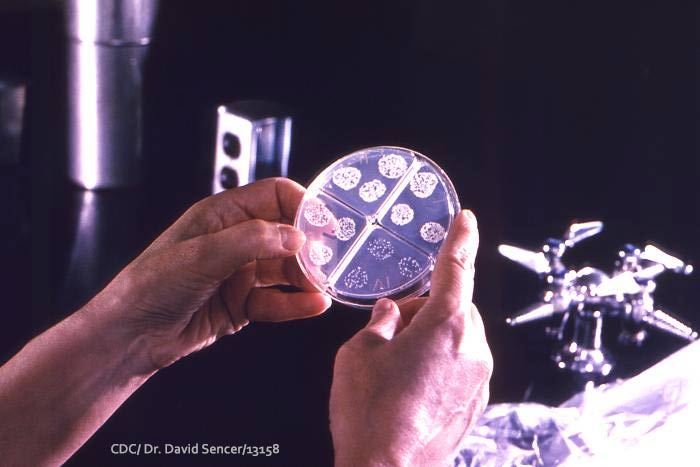At least 4 patients at Cedars-Sinai Medical Center in Los Angeles contracted dangerous infections from a specialized endoscope called a duodenoscope. This was used in a procedure called endoscopic retrograde cholangiopancreatography (ERCP). Patients had the procedures between August of 2014 and January of 2015.
Defective ERCP Endoscope
The endoscope (duodenoscope) used for the ERCP procedure was defective because it could not be cleaned well enough to eliminate all pathogens in microscopic crevices in the tip of the device (shown above).
The moving parts of the elevator mechanism contain microscopic crevices that may not be reached with a brush. Residual body fluids and organic debris may remain in these crevices after cleaning and disinfection. If these fluids contain microbial contamination, subsequent patients may be exposed to serious infections. (FDA)
Patients Infected with CRE Bacteria
The 4 patients at the Los Angeles Cedars-Sinai Medical Center were infected with bacteria called Carbapenem-resistant Enterobacteriaceae, or CRE. These CRE bacteria are a family of germs that are highly resistant to Carbapenem antibiotics1. The Enterobacteriacea family of bacteria include Salmonella, E. coli, Yersinia, Klebsiella, Shigella, Proteus, Enterobacter, Serratia, and Citrobacter.
One Wrongful Death?
CRE has a high mortality rate. One of the 4 patients died. Cedars-Sinai says it was not from the CRE infection, but the case needs to be investigated. If this case can be linked to the defective ERCP duodenoscope, the family has a wrongful death claim against the manufacturer.
Get Legal Help
Our lawyers are investigating cases and are preparing to file a lawsuit for infection from an ERCP endoscope.
Sources:
1. http://www.cdc.gov/HAI/organisms/cre/
2. http://www.fda.gov/MedicalDevices/Safety/AlertsandNotices/ucm434871.htm
